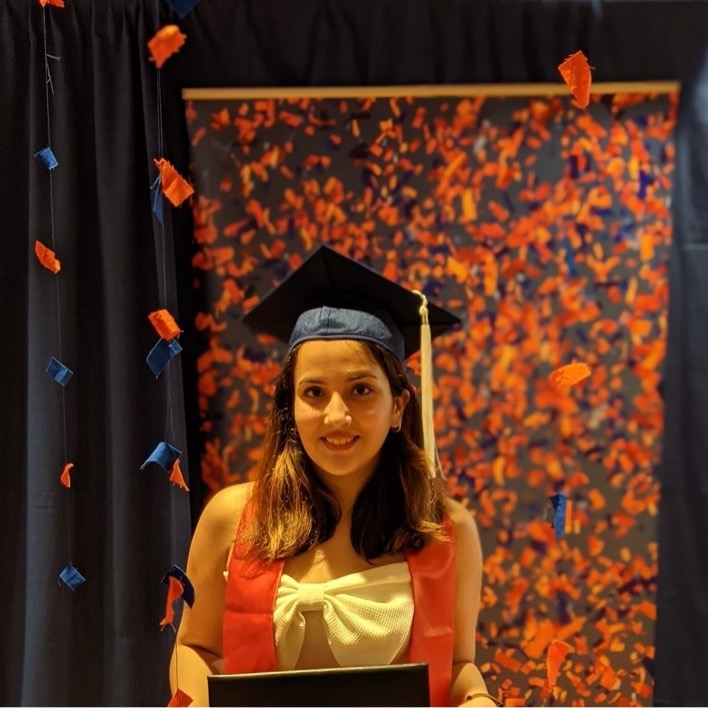The WW Lab Summer Internship Program provides MA students with the opportunity to volunteer in tasks related to the lab’s ongoing projects.
With this non-paid opportunity, Summer Research Assistants gain research experience and have the opportunity to work with WW researchers.
Applications are now closed.
2024 Summer Research Internship
Relational Pathways to STEM Identity and Belonging
Ashley Bonilla
Summary: This dissertation study explores the relational pathways influencing STEM identity and belonging, focusing on historically marginalized groups (HMGs) and women. It delves into how communal goals framed as growth-in-connection, shape STEM engagement and persistence (e.g., identity and belonging). Through a mixed-methods approach, this study aims to redefine success in STEM, emphasizing collaboration and connection to foster a more inclusive and diverse STEM community.
Internship: This summer we’ll be coding reflections of the experiences of STEM professionals to better understand their perceptions of STEM fields.
Past 2023 Summer Research Internship
Workplace Meditation: Support coding a bibliometric dataset with a focus on future directions
Positive Leadership: Some novel use of tech, qual coding of abstracts, using ChatGPT, auditing the AI codes to ensure they align with reality and lead to appropriate cluster descriptions
Why Do Women Leave Tech? Opportunities for Transformation: Verification of the codes initially obtained by the researcher to have intercoder reliability
- Summary: The 2019 U.S. Bureau of Labor Statistics report on American jobs revealed that women hold 50.04% of all positions compared to men. However, in computer-based occupations, only 26.2% of individuals are women, indicating a significant gender gap. Although women’s participation in other sciences has increased, data suggests a decline in women’s representation in computing and technology since the early 1900s. Investigating why women leave tech careers is crucial, as it is a social justice and economic issue. This qualitative study, utilizing 534 comments from a Reddit forum, aimed to identify factors contributing to women leaving tech jobs. Thematic analysis revealed five themes with their respective subthemes: unequal pay, low job/career calling, workplace mistreatment, workplace biases, and work-life balance. This study also suggests ways in which leaders and policymakers can promote positive change to establish an equitable workplace for women in tech.
- You will gain:
- Skill development: Coding a qualitative study requires developing skills such as close reading, analytical thinking, and attention to detail. By assisting with coding, research assistants can develop and refine these skills, which can be useful in future research endeavors.
- Exposure to research process: Assisting with coding provides research assistants with an opportunity to learn about the research process and how qualitative data is analyzed. This can be particularly valuable for those who are interested in pursuing a career in research or academia.
Allyship Meta-Analysis: Identifying if there are enough published articles on allyship to conduct a meta-analysis
- Summary: Allyship has become an increasingly important concept in the workplace, with a growing body of research demonstrating its potential to promote diversity, equity, and inclusion. However, despite the increasing interest in allyship, there remains a need for a comprehensive meta-analysis that examines the effects of allyship on employee outcomes in the workplace. The proposed meta-analysis would address this gap by synthesizing the results of existing studies that have investigated the relationship between allyship and employee outcomes, such as job satisfaction, employee engagement, turnover intentions, and workplace well-being. The proposed meta-analysis would provide valuable insights into the relationship between allyship and employee outcomes, which would inform the development of strategies and interventions aimed at promoting allyship in the workplace. By identifying the conditions under which allyship is most effective in promoting positive employee outcomes, the meta-analysis could also help organizations to optimize their diversity, equity, and inclusion initiatives. Moreover, the findings could contribute to the broader conversation on allyship in the workplace, highlighting the importance of allyship as a means of promoting a more inclusive and supportive work environment.
- You will gain:
- Familiarity with the research process: Coding for a meta-analysis involves reviewing and analyzing a large number of studies, which can give research assistants exposure to the research process. They can learn about different study designs, data collection methods, and statistical analyses used in research.
- Improved critical thinking skills: By reviewing and analyzing multiple studies, research assistants can gain exposure to different research questions, methodologies, and findings. This can help them develop critical thinking skills, as they evaluate the strengths and limitations of each study and assess the overall quality of the evidence.
- Understanding of the research topic: Meta-analyses often involve a comprehensive review of the literature on a specific topic. Research assistants who participate in coding can gain a deeper understanding of the topic and the current state of research in the field. This knowledge can be applied to future research projects or to inform decision-making in other contexts.
Past Summer Research Assistants
Bhavika Anand
Bhavika Anand is a Master’s student majoring in Organizational and Behavioral Psychology. She graduated from University of Illinois at Urbana-Champaign in 2021 with a degree in Econometrics and Social Psychology. Her research interests include motivation in the workplace, strategies to mitigate workplace conflict, and ethical issues in an organization.
Brian Juarez
Brian is a second-year masters student in the Positive Organizational Psychology and Evaluation program. He received his B.A. in Psychology from California State University Dominguez Hills. He has previously researched racial inequalities among editor in chiefs of academic journals. His research interests Include DEI in organizations, impacts of positive interventions, and group dynamics and processes.
Delia Bani-Shoraka
Delia is a first-year masters student in Organizational Behavior and Evaluation. She recently graduated with a BA in Psychology from California State University, Northridge. Her passion lies in employee engagement and motivation, leadership development, teamwork, and the importance of a healthy work environment.
Eliicia Villasenor
Eliicia Villasenor graduated from CGU with an M.S. in Human Resource Management with a concentration in Positive HR. Her next goal is to pursue a Ph.D. in Positive Organizational Psychology. She received her B.A. from Arizona State University in Organizational Leadership. Eliicia spent 8 years in the Army National Guard and is now enjoying her time investing in her education and being a mom to her kids. Her research interests include positive psychology, leadership, and DEI&B.
Fabiana Memoro
Fabiana is a MA Positive Developmental Psychology student. She is passionate about conducting research into positive psychology and coaching. She has 10+ years of expertise as an executive coach within small enterprises and international companies. She works globally with various clients, from senior managers to high potential individuals from different social and cultural backgrounds. She is passionate about supporting her clients to become visionary leaders and adopt effective strategies to thrive in their personal and professional contexts. She got a BA and MA in Philosophy in Italy and an MSc in Psychology in London (UK). She is a firm believer in the growth mindset; her next goal is to get a position in Ph.D. in Positive Psychology.
Lin Gu
Lin Gu is a master’s student majoring in Public Health. She graduated from Claremont Graduate University in 2023 with a master’s degree in Positive Health Psychology. She received her B.A. in Education from Suzhou University of Science and Technology. Her research interests include impacts of mindfulness-based interventions on mental and physical health, health education, and health promotion programs planning and implementation.
Song Xue
Song is a second-year master’s student in the Positive Organizational Psychology and Evaluation program. He graduated from the University of Pacific with a B.S. in Psychology in 2018. He has previously researched employee work engagement and work-life balance in the remote work environment. His current research interests include workplace spirituality, calling, and ikigai intervention. His next academic goal is to get admitted to the Positive Organizational Psychology Ph.D. program at CGU.






